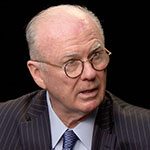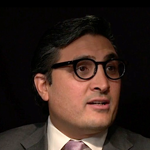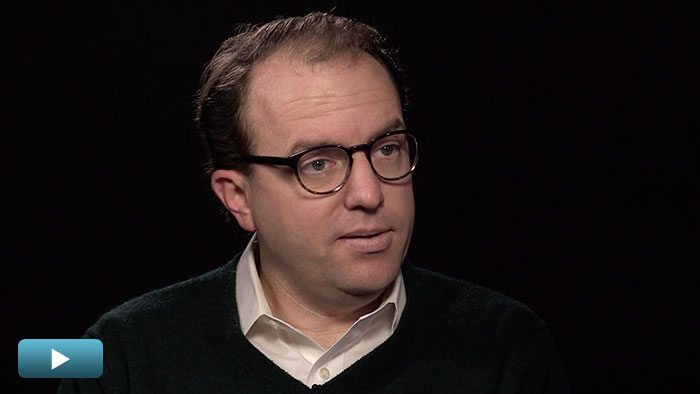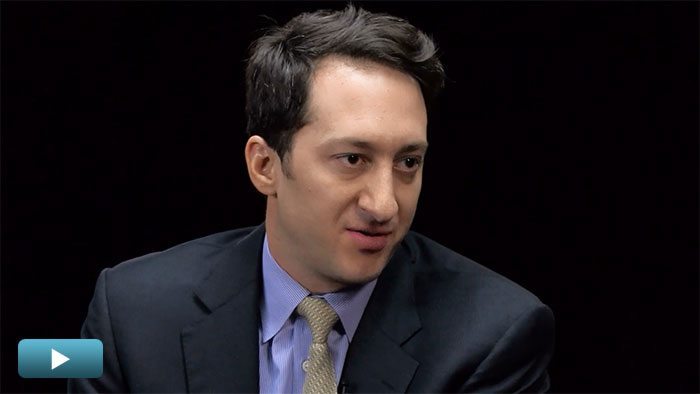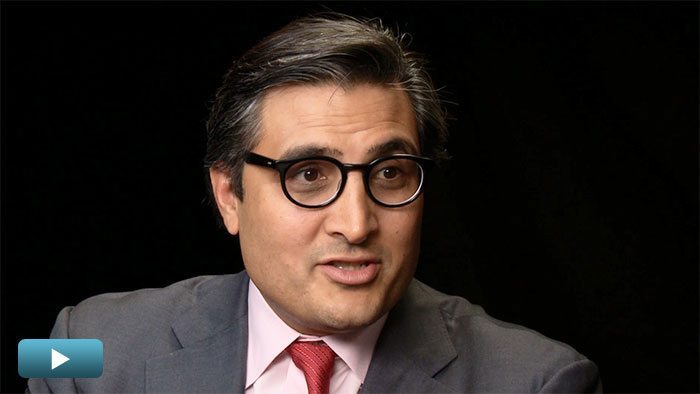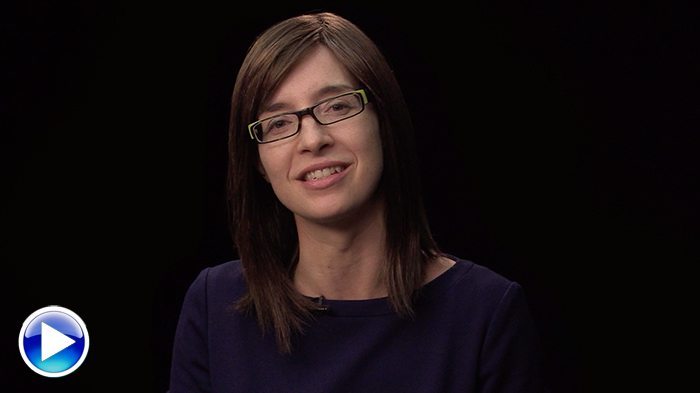Compilation: Experts Predict 2014’s Biggest Trends
What will happen with interest rates in 2014? With global capital flows? With GP consolidation? PrivcapRE asked leading real estate veterans.
Transcript Download Transcript
PrivcapRE 2014 Outlook
2014 Game Changes in Private Real Estate
Ted Leary, Crosswater Realty Advisors:
I think it’s the same old, same old, we’ll just make the same old mistakes in a different way. I see it already beginning, people are getting into deal fever, both on the planned sponsor side and the manager side. So, I think that we’ll go through another crash within five years, if not a crash, a pretty solid dip.
Zoe Hughes, PrivcapRE:
At PrivcapRE we wanted to mark the New Year by looking at potential game-changers for the commercial real estate industry.
Ted Leary’s argument that we’ll see another crash within the next five years is on the extreme side of the analysis, but in interviewing industry professionals over the past few months and compiling their predictions as to what they see could be potential game-changers for 2014, we discovered there were three central themes that could present significant challenges and opportunities for our business.
The first one, of course, as you may have guessed, is interest rates and the real impact that will have on cap rates and maturing commercial real estate debt.
Ralph Rosenberg, KKR:
So if I had to put it in one sentence, the game changer would be, if we see a surprising step function move in the risk free rate in the United States in 2014, that will dramatically impact real estate prices overnight. So if you think about it, the risk free rate has moved from, call it 1.6% up to 3% over that period of time and I think if we see another 100 or 150 basis points moves, movement in treasury rates in the United States in the next, you know, 6-9 months, that will be a game changer for the commercial real estate space because ultimately, you’re going to see the widening of cap rates I think come into the forefront of everybody’s mind. A lot of the players in the market have effectively, particularly in core and core plus space, have allowed cap rates to compress quite dramatically and it takes a lot of NOI growth, as you know, to compensate for cap rate expansion.
Sonny Kalsi, GreenOak Real Estate:
If we didn’t have the theatrics going on in Washington we had, my view is I think the big surprise in 2014 is going to be this interest rates on both the short-end of the curve and the long-end of the curve are going to go up faster than anyone thinks. And I don’t think the market’s ready for that at all. On the long-end, we’ve already seen what’s happened with the treasury, but on the short-end, we’re still at zero and I think that’s going to go up a lot and a lot of the financing that’s coming due within the next 24 months is still a lot more floating financing. If there’s a game changer that comes out of it, if that’s allowed to happen, I just think we’ll see a lot more defaults than people thought.
Peter Braffman, Grosvenor Customized Fund Investment Group:
Everyone’s looking to 2015. That’s kind of the target. But by 2014, there’s going to be a lot of anticipation what’s going to happen and we’re seeing that already rates are moving. That has impact on the ability to borrow and it’s going to have a big impact on the ability to both buy real estate and sell real estate. So that means that all the stuff we’ve been buying over the past few years that expect to be sold in the next few years, 2014 could be a problem because all of a sudden what they expected to be one kind of cap rate environment may be very different. Similarly, people may look at trying to buy stuff and say, “You know what? I can’t get the debt because the interest rates are moving in such an extraordinary way.”
Sam Chandan, Chandan Economics:
We’re going to see folks that are going to be making decisions much more carefully, much more judiciously whether they’re buying a core asset or to a greater extent, secondary markets value-add opportunities. Those, I think, are going to become, you know, more of a focus over the next couple of years. But in an environment where the rates aren’t facilitating, you know, any deal that you might want to engage in making, I think what we’ll see is that we see a greater separation of folks who really are able to be judicious, to separate out the great opportunity from the mediocre opportunity and those who have depended upon very low cost financing in the absence of that kind of discretion.
Zoe Hughes, PrivcapRE:
One of the notable trends globally in 2013 had to be the prominence of the foreign investor in commercial real estate. Whether it was Chinese investors looking to New York, London or Tokyo or European investors eyeing Asia and North America, there was roughly $40 billion of additional cross border capital flows in 2013 compared to 2012 and 2011.
2014 will be no different, with the pace of capital flows from foreign investors set to dramatically increase.
Marjorie Tsang, NY Common:
I think the mother of all tsunamis of capital will be coming onshore to the U.S. If we thought that foreign capital was interested in investing here before, I think that it’s only going to increase. The United States is a safe haven. The gateway cities are an ultra safe haven and so whatever you’ve seen before, I think that it will be really, really enhanced in 2014.
Chris Keber, Hines:
I have strong confidence that the capital flows from sovereign wealth funds will continue in an unprecedented dimension. I specifically think China is going to lead the way with a wave of capital, such that we have never seen in private real estate before. I would say it’s large institutions from around the world continuing to increase capital flows at a rate and a dimension that wasn’t seen before 2014.
Cheryl Boyer, Fulcrum Hospitality:
I’m not sure this will be so much of a game changer in 2014 as much as an acceleration of what we’re already seeing perhaps in the marketplace today, but I think the globalization of investment into major markets, like New York, like San Francisco, I think we’re just going to see a continue to accelerate and I think some of these markets have always been a place where you see international investment dollars come, but I think where that money is coming from and the diversity of where the money’s coming from is changing the face of real estate a bit.
Zoe Hughes, PrivcapRE:
In assessing the challenges and opportunities facing private real estate investors and managers in 2014, we shouldn’t restrict ourselves to thinking about the external factors, such as interest rates or new sources of foreign capital coming onto our shores. We also have to face significant challenges within our industry.
The financial crisis, the concentration of capital into the hands of fewer managers, this is all leading to a slow consolidation of GPs. Michael Hoffman and Larissa Herczeg argue that this consolidation is also paving the way for a new vintage of GPs, for new managers to emerge in our industry.
Michael Hoffman, Probitas Partners:
We see a significant decline in incumbents being able to come back to market because of track and that means we’re almost back to the late 90s again post the RTC era where new managers are going to inherently become necessary to be able to meet the allocation needs of LPs. What that means is people with terrific operational capabilities or people with unique strategies, things that are different in portfolio that LPs are seeking or things that are backfilling the opportunistic bucket that they’ve kind of laid off on the last several years will become important again and robust again. We see that generating a whole new vintage of new GPs, some of which will obviously go on to be the leaders in the industry.
Larissa Herczeg, Oak Street Real Estate Capital:
It’s a bit more of a subjective answer but that the big game changer in 2014 will be the investor universe will be able to see some very successful emerging manager programs. I think historically, they’ve had a bit of a tank to them. They’ve been politically motivated and so we haven’t seen the enthusiasm in the space that a lot of these smaller managers really deserve. I think the investors that are currently supporting emerging managers, the fund of funds, everyone in the space, the managers themselves, we’ve all worked very hard, very cooperatively despite in many instances being competitors to try to really promote the space, get people excited and I think the results of that has been very positive and I think the outcome is going to be some very positive economics for the investors who’ve taken the risk and made those emerging manager investments.
I’m certainly hopeful that that’s going to be a real game changer. People will see that these programs have been successful, the returns have been attractive, in some cases, maybe more attractive than investing with a lot of established managers, and that will cause a lot of new investors to start participating in the space.


